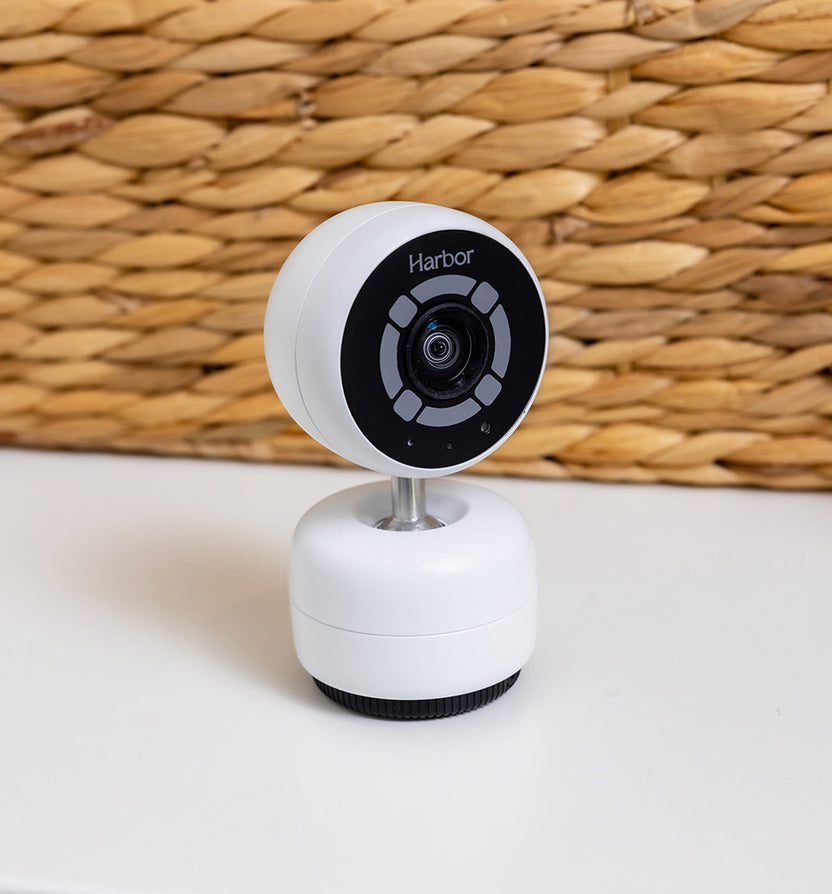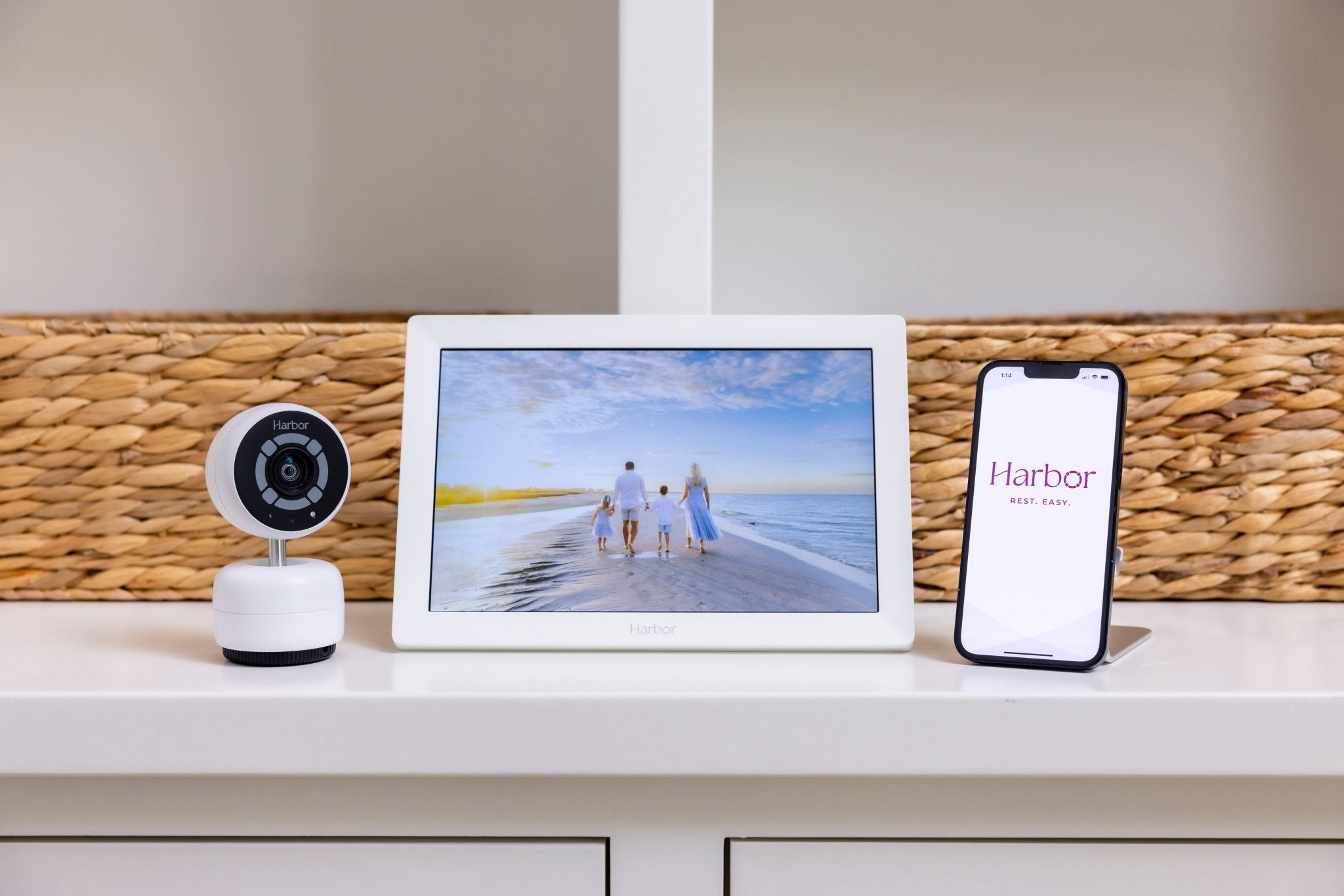
Parenting can feel all-consuming. Especially in the early days, when your little one is entirely dependent on you to survive, it’s not uncommon for your identity to become entirely “mom” or “dad.” But there’s more to you than simply being a parent, and it’s important not to lose sight of that. Being a parent is absolutely your most important role for your young children, but it doesn’t mean you can’t be or do anything else. Indeed, you must maintain a life outside of parenting in order to be a great parent!
To explore this, Harbor recently spoke with Dr. Lyndsey Harper, MD, a board-certified OB-GYN, founder of women’s health platform Rosy, and mom of three.
As a practicing doctor, Dr. Harper regularly saw patients with concerns about sexual health, but her medical training didn’t address any of that. She pursued a fellowship in sexual medicine and developed Rosy as a means of democratizing information for parents and their doctors.
Education and literacy form the backbone of everything Rosy does, with postpartum life changes and relationship challenges being common concerns for users. Very often, Dr. Harper’s recommendations are rooted in shifting a new parent’s perspective, putting challenges into context, and not losing sight of their needs.
Watch our interview with Dr. Harper!
Read on for her insights and see what they might spark for you.
Navigating family planning stress
Even before welcoming a child into the world, the experience of navigating family planning and pregnancy can be stressful. “There’s a lot of thoughts and emotions and expectations, whether they’re said or unsaid, that are built into the time around having a child and creating a family,” Dr. Harper explains. “All of that swirl can lead to [stress] for everyone involved.”
Much of this stress is rooted in the perception that there’s a “right” way to become a parent and build a family. Dr. Harper reminds her patients that parenting has never been one-size-fits-all. “It’s looked a billion different ways every time. That doesn’t mean there’s one right way to do everything, and certainly no way is perfect,” she says.
What can be helpful, Dr. Harper says, is to ground yourself in the support systems you already have in place, inclusive of family, financial resources, medical care, and friends who have gone through their own pregnancy journeys.
Maintaining perspective
The unfortunate reality of being a new parent is that there will always be challenges. “There’s a season of life that is postpartum. That’s all there is to it. It’s super stressful, and I always tell patients that lack of sleep was a true form of torture in wartime,” Dr. Harper shares, underscoring the importance of being realistic about what the postpartum stage looks like.
With this, it can be helpful to develop an understanding of why new parents might have a shorter fuse. Dr. Harper explains that sleep can offer an emotional buffer in the face of stress. With a lack of sleep, we lose that buffer and are more likely to experience feelings of overwhelm or have difficulty coping.
“When we get further from the day of birth and the early days, there will be little sprouts of what used to be—our previous identity, our relationship with our partner, a long stretch of sleep,” she shares. They’ll be temporary at first, but holding onto those feelings can remind you of who you are in addition to your new role as parent.
Creating space for your relationship
As new parents, it can be easy to lose yourself in the parenting journey. “Whenever we transition to the role of parent, and especially mother, there’s a cultural tendency to become really wrapped up in that identity,” Dr. Harper says. “We switch from being partners, spouses, and professionals to ‘mom,’” adding that it’s important for new parents to retain a sense of personal identity.
“We throw ourselves into the role of parents, but we have to remember that we are people outside of that,” she urges. “That’s really the healthiest situation not only for us and our partnership but for our children as well,” adding that what that looks like can take different forms.
Dr. Harper encourages new parents to invest in both small and big opportunities to connect:
Flirting and physical contact, whether sexual or non-sexual, allows couples to maintain intimacy amid the stressors of new parenthood. Similarly, talking to each other in ways that are not parental, or are not about parenting, can work to maintain connection.
“I also think it’s fun and important to have things to look forward to in your partnership,” Dr. Harper says, offering a vacation she and her husband took each time one of their children turned one and stopped nursing as an example. “It doesn’t have to be big, but it should be something to … celebrate your accomplishment as a family and as a team.”
Figuring out the right sleep schedule for you
Dr. Harper can empathize with the challenges of balancing competing demands. At six weeks postpartum, Dr. Harper went back to working 80-hour weeks as a doctor. Because of her work schedule and self-described type-A personality, Dr. Harper began focusing on sleep as early as possible and found that by adhering to its basic principles, she found a reproducible rhythm that worked for her three kids.
Ultimately, she also knew from working with her patients and her research that adequate sleep is the key to success for most people. This enables you to be the best parent, partner, and person you can be. Without sleep, everything is just so much more difficult.
While developing healthy sleep habits early worked for Dr. Harper, it’s essential to find a routine that works for your needs. And while it’s not uncommon for new parents to be bombarded with a range of sometimes contradictory advice, it’s important to take it with a grain of salt.
“Historically, we had our family’s way of [approaching sleep] or our culture’s way of doing it. Now, we’re exposed to everyone’s way of doing it,” Dr. Harper says. “In the past, we wouldn’t have really questioned what the plan was, and if support from elders was built into the postpartum experience, it wouldn’t have been so difficult for the individual trying to implement it.”
“Now … hopefully we have the support of our spouses or technology, but sometimes we don’t. It feels like a lot of pressure because you need to make all of these decisions: number one, triage the information, and number two, put it into action when the systems that support those actions may not be in place for you.”
To recap
While stepping into a new identity as a parent can be beautiful, it’s important to not lose sight of who you are outside of your role as “mom” or “dad.” Dr. Harper put it into perspective: “We’re going to spend most of our life in our house without our children, whether we like it or not,” she says, noting that she only has a handful of years left with her 13-year-old daughter under her roof.
Being intentional and creating space for you and your partner not only supports your relationship but also your mental well-being and the way you show up as parents. This is self evident for the time your kids live under your roof, but it is often overlooked in the life you build for yourself outside being a parent and in the many years after your kids move out!
About Dr. Harper

Lyndsey Harper, MD is a Board Certified Ob/Gyn, Associate Professor of Ob/Gyn for Texas A&M COM, a Fellow of The American Congress of Obstetricians and Gynecologists, and a Fellow of the International Society for the Study of Women's Sexual Health. Dr. Harper is the founder and CEO of Rosy, an award-winning women’s health technology company that connects women who have sexual health concerns with hope, community, and research-backed solutions. She has been named Forbes Top 53 Women Disrupting Healthcare, People Newspapers’ 20 Under 40, a Top Innovator in North Texas for 2020 and a DBJ Top Woman in Tech.




